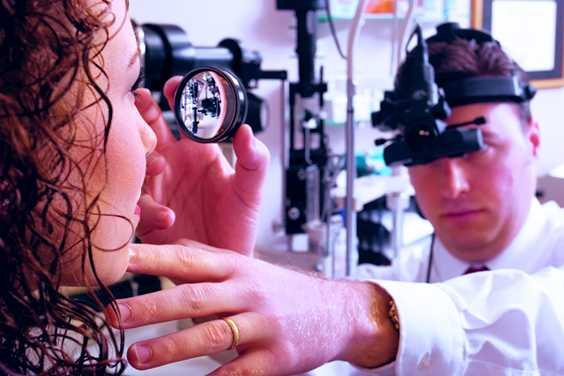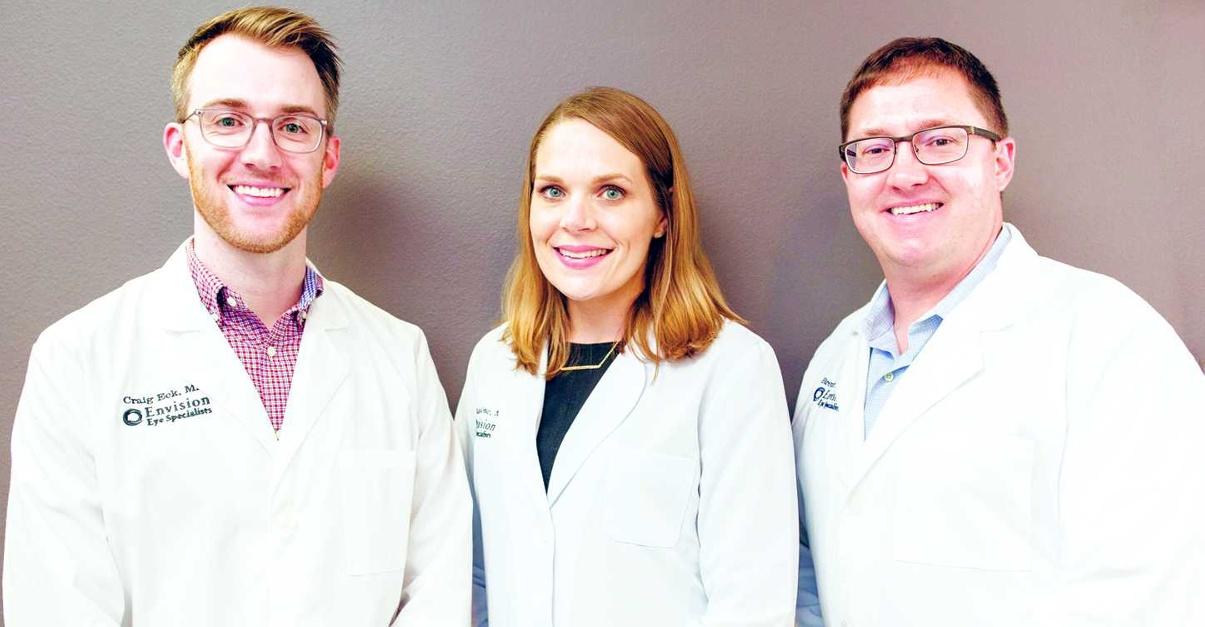
3 minute read
Optometrist
How to Choose
your local guide
Advertisement
How to Choose... Selecting the Best Eye Doctor
Straining your eyes to read your favorite book? Squinting to see across the room? Chances are you need glasses or contacts.
Regular eye exams are crucial to your long-term health and happiness..Even if you don’t have noticeable trouble with your eyesight, it is still important to have a routine examination. Getting your eyes checked often makes it possible to discover vision issues early. Catching problems early makes the problems easier to treat. Catching and treating eye problems early will likely lead to better outcomes. But choosing a right optometrist or ophthalmologist can be a challenge. Consider these aspects when doing your research.
INSURANCE
If you have health or vision insurance, check the list of doctors who are covered by your plan. Insurance companies make agreements with doctors or eye care specialists to deliver services at a prearranged price. Picking an “in-network” doctor will save you money on your co-pay and outof-pocket costs.
TYPES OF DOCTORS
While optometrists do not medical degrees, they do have specialized training in diagnosing and treating vision and eye health-related problems. These professionals receive bachelor’s degrees before their four-year training programs. Optometrists can identify and diagnose a variety of e ye disorders, including cataracts, glaucoma and retinal disease. They also have the ability to write prescriptions to treat these conditions.
Ophthalmologists are medical doctors who treat eye diseases. They have medical degrees along with their specialized training for eye treatment. Their extensive background typically includes four years of pre-med school, four years of medical

school, at least one year of an internship and three years of residency before receiving their ophthalmology license. Along with treating vision problems, they provide medical and surgical care, and even plastic surgery.
TRAINING
Eye doctors often specialize in certain diseases or treatments. If you have been diagnosed with glaucoma, for instance, you can find a doctor who has experience specifically treating that disease. Be sure to ask eye doctors about their experiences treating specific diseases and conditions.
REFERENCES
Your family doctor or general practitioner may know the good eye doctors in your area. Doctors often refer patients to an eye care specialist that has the most experience treating specific needs.
Friends and family can also provide helpful advice. They can tell you who they used for their previous eye exams. They can also provide insight about any issues and tell you who works well with children.

SELECTION
Some people are particular about their eyeglass frames, lenses or contacts. If you already know what you need -- such as glasses from a particular designer -- look for an eye doctor who has access to that brand. You can also see their stock of eyeglass frames to make sure they carry the style you desire.
When purchasing glasses, you will want to have a wide range of products to view. Lenses and frames can vary in terms of comfort, appearance, price and quality. The better the selection, the more likely you will find that perfect pair of glasses.
Don’t let yourself miss out on all of the beauty and fun in the world. See your local eye doctor know and start enjoying life again.
Dr. Craig Eck Dr. Shana Rose Dr. Brent Davidson At the forefront of technology, we offer Laser Assisted Cataract Surgery.

• Diagnosis and Medical Treatment of Eye Disorders and Diseases • Cataract Evaluation and Surgery • Glaucoma Treatment • Diabetic Eye Exams • Specializing in Advanced Corneal Surgery
Call today to make an appointment!

Envision Eye Specialists Farmington, MO 1390 W. Liberty St., Farmington, MO 63640 (573) 915-7000 Envision Eye Specialists Fenton, MO (636) 717-1700 Visit our website at www.envisioneyestl.com





